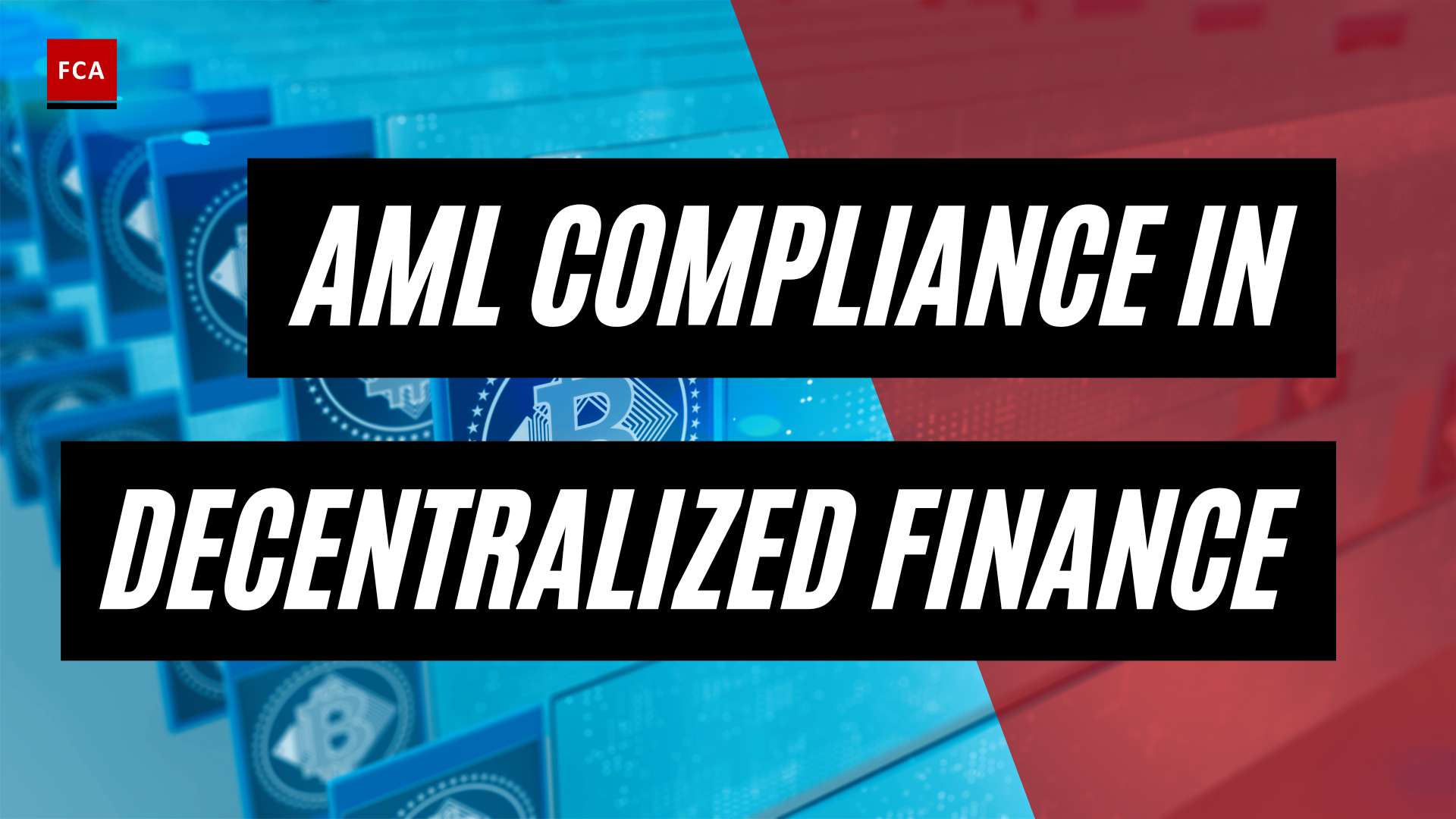AML in the Gaming Industry
The gaming industry, including online gambling platforms, has become a target for money laundering and other illicit activities, necessitating robust anti-money laundering (AML) measures. Understanding AML compliance in the context of online gambling and the regulatory landscape is crucial for ensuring the integrity and security of the industry.
Understanding AML Compliance in Online Gambling
Online casinos, betting apps, and other gambling institutions have historically been used for money laundering and other criminal activities Source. The high volume of financial transactions and the potential for anonymity and lack of transparency make the gaming and gambling industry a high-risk sector for money laundering activities Sanction Scanner. To combat this, AML compliance programs are essential.
AML compliance in online gambling involves implementing measures and practices to prevent money laundering, terrorist financing, and other financial crimes within the industry. It requires the identification and verification of customers, monitoring their transactions for suspicious activities, and reporting any suspicious transactions to the relevant authorities.
Regulatory Landscape for Online Gambling
The regulatory landscape for online gambling is constantly evolving, with traditionally gambling-averse jurisdictions increasingly legalizing and regulating online gambling platforms Source. Countries such as the Netherlands, Germany, Spain, Italy, the UK, Belgium, Switzerland, France, and Denmark have embraced online gambling to varying degrees.
Regulatory bodies, such as the UK Gambling Commission (UKGC), have updated their AML guidance to strengthen AML measures in the industry. The UKGC’s recent guidance emphasizes the importance of monitoring customer activity to detect potential money laundering or terrorist financing SEON. Non-compliance with AML regulations can result in severe legal and financial consequences for gaming operators Sanction Scanner.
To navigate the complex regulatory landscape, gaming operators must stay updated on AML regulations specific to the gaming and gambling industry. This includes understanding risk assessment requirements and implementing robust know your customer (KYC) procedures aml regulations in the gaming industry. By adhering to these regulations, gaming operators can safeguard their businesses and contribute to the overall integrity of the industry.
In the next sections, we will explore the AML measures and monitoring tools that can enhance compliance efforts in the gaming industry.
AML Measures for Online Casinos
To ensure compliance with anti-money laundering (AML) regulations, online casinos implement specific AML measures. Two crucial components of AML compliance in the gaming industry are Know Your Customer (KYC) procedures and responsible gambling guidelines.
Know Your Customer (KYC) Procedures
Online casinos are obliged to conduct KYC procedures as part of local AML regulations. KYC procedures typically involve the submission of official identification documents by new players for verification purposes. This process allows online casinos to verify the identity of their customers and establish a clear understanding of their financial activities. KYC information is essential for detecting and preventing money laundering, terrorist financing, and other financial crimes in the gaming and gambling industry.
By implementing robust KYC procedures, online casinos can fulfill their regulatory obligations and mitigate the risk of facilitating illicit financial activities. These procedures help create a safer and more secure environment for both the casino operators and their customers.
Responsible Gambling Guidelines
Responsible gambling guidelines require online casinos and betting shops to adhere to responsible gambling requirements. This includes measures aimed at preventing underage gambling and detecting problematic gambling behavior. Online casinos must take proactive steps to ensure that their platforms are not accessible to individuals below the legal gambling age.
Additionally, responsible gambling guidelines emphasize the importance of detecting signs of problematic gambling behavior. Online casinos are encouraged to implement monitoring systems to identify players who may be exhibiting addictive behavior or spending beyond their means. By identifying and intervening in such cases, online casinos can promote responsible gambling practices and protect vulnerable individuals from potential harm (Source).
By adhering to responsible gambling guidelines, online casinos demonstrate their commitment to maintaining a socially responsible gaming environment. These guidelines help safeguard players and contribute to the overall integrity of the online gambling industry.
Implementing robust KYC procedures and adhering to responsible gambling guidelines are crucial elements in the fight against money laundering and the promotion of responsible gambling practices. By prioritizing these measures, online casinos can contribute to a more secure and responsible gaming environment for their customers.
Importance of AML Monitoring Tools
AML monitoring tools play a crucial role in the online gambling industry, helping to combat money laundering and other financial crimes. The advancements in technology have led to the development of sophisticated tools that enable online gambling platforms to effectively monitor and detect suspicious activities in real-time. These tools are essential for complying with stringent regulatory requirements and safeguarding the integrity of the industry.
Role of AML Monitoring Tools in Online Gambling
The online gambling industry faces unique challenges when it comes to anti-money laundering (AML) compliance. With high transaction volumes and the need for real-time monitoring, AML monitoring tools are indispensable. They allow platforms to scrutinize vast amounts of data, identify patterns, and flag potentially illicit activities swiftly.
By leveraging AML monitoring tools, online gambling operators can effectively monitor transactions, player behavior, and customer interactions. These tools enable the identification of high-risk transactions and customers, helping to prevent money laundering practices. Implementing robust AML monitoring tools is not only a regulatory requirement but also crucial for maintaining the reputation and integrity of online gambling platforms.
Advancements in AML Monitoring Technologies
The continuous advancements in AML monitoring technologies have revolutionized the way the online gambling industry combats financial crimes. These technologies utilize artificial intelligence (AI) and machine learning algorithms to analyze vast amounts of data generated by online gambling platforms.
By leveraging AI and machine learning, AML monitoring tools enhance risk assessment processes and improve the detection of anomalies that may indicate money laundering or other illicit activities. Real-time monitoring capabilities allow gambling platforms to quickly flag suspicious activities, ensuring compliance with regulatory requirements.
Implementing automated AML monitoring systems streamlines the monitoring process, enabling online gambling operators to monitor transactions effectively. These tools help in identifying high-risk transactions and customers, monitoring player behavior, and implementing customer due diligence processes. The integration of AI and machine learning algorithms enhances the efficiency and accuracy of AML monitoring, providing a proactive approach to combating money laundering.
In conclusion, AML monitoring tools are indispensable for the online gambling industry. They play a vital role in complying with regulations, detecting potentially fraudulent activities, and safeguarding the reputation and integrity of online gambling platforms. By leveraging advanced technologies and automated systems, operators can effectively monitor transactions, identify high-risk activities, and prevent money laundering and other illicit financial practices. Implementing robust AML monitoring tools is not only a regulatory requirement but also a strategic investment in maintaining a secure and transparent gaming environment.
Implementing Effective AML Monitoring
To ensure compliance with Anti-Money Laundering (AML) regulations, online gambling operators must implement effective AML monitoring strategies. Two key aspects of AML monitoring in the online gambling industry are transaction monitoring and the consequences of inadequate monitoring.
Transaction Monitoring for Online Gambling
Implementing an effective transaction monitoring system is essential for online gambling operators to comply with AML regulations, safeguard their business reputation, and avoid heavy penalties (SEON). Transaction monitoring involves analyzing data from various sources, such as deposits, withdrawals, and gameplay, to identify unusual or suspicious patterns that may indicate money laundering or fraud (SEON).
By leveraging AML monitoring tools, operators can analyze customer data, transaction history, and behavioral patterns to create risk profiles. These profiles help in detecting suspicious activities in real-time, enabling timely intervention and mitigating potential risks. It is crucial for online gambling operators to have robust transaction monitoring systems in place to identify and report any suspicious transactions promptly.
Consequences of Inadequate AML Monitoring
Failure to have robust AML monitoring tools in place can result in severe consequences for online gambling operators. Non-compliance with AML regulations can lead to large fines, loss of reputation, and potential legal action (SEON). Additionally, inadequate AML monitoring can expose online gambling platforms to the risk of being exploited by money launderers and fraudsters, which can further damage the integrity of the industry.
To protect their business and maintain a strong regulatory standing, online gambling operators must invest in advanced AML monitoring tools and systems. These tools help in effectively detecting and preventing suspicious activities, enhancing overall compliance efforts, and safeguarding the integrity of the online gambling industry.
By implementing robust transaction monitoring systems and avoiding inadequate monitoring practices, online gambling operators can fulfill their AML obligations, mitigate risks, and contribute to a safer and more secure gambling environment.
For more information on AML compliance in the gaming industry, including regulations and risk assessment requirements, refer to our section on AML Compliance in the Gaming Industry.
AML Compliance in the Gaming Industry
To combat money laundering and other financial crimes, the gaming and gambling industry must adhere to specific anti-money laundering (AML) regulations. These regulations aim to mitigate the risks associated with the industry and ensure the integrity of financial transactions. Two key aspects of AML compliance in the gaming industry are AML regulations and risk assessment with know your customer (KYC) requirements.
AML Regulations for the Gaming and Gambling Industry
The gaming and gambling industry is considered high-risk for money laundering due to the high volume of financial transactions and the potential for anonymity and lack of transparency. As a result, regulatory bodies, such as the Financial Action Task Force (FATF), have implemented stringent AML regulations to prevent money laundering and terrorist financing in the industry (Sanction Scanner).
In 2009, the FATF revised its Recommendations to increase AML obligations for the gaming and gambling industry. These revised Recommendations require gaming and gambling companies to implement robust AML measures to prevent financial crimes. Non-compliance with these regulations can result in severe legal and financial consequences (Sanction Scanner).
To ensure AML compliance, gaming and gambling operators must stay up to date with local AML regulations. Jurisdictions around the world, including the Netherlands, Germany, Spain, Italy, the UK, Belgium, Switzerland, France, and Denmark, have their own specific AML requirements for the online gambling sector (Source).
Risk Assessment and KYC Requirements
KYC procedures and risk assessment play a crucial role in AML compliance within the gaming and gambling industry. Online casinos, for example, are required to conduct a KYC procedure as part of local AML regulations. This typically involves players submitting official identification documents for verification purposes (Source).
Risk assessment is another essential component of AML compliance. Gaming and gambling operators must conduct thorough risk assessments to identify and mitigate potential money laundering risks. This includes assessing the risks associated with their customer base, financial transactions, and the jurisdictions in which they operate.
KYC information is crucial for detecting and preventing money laundering, terrorist financing, and other financial crimes in the gaming and gambling industry. While specific KYC requirements may vary by jurisdiction, certain fundamental elements are generally expected to be included. These may include verifying the identity of customers, assessing their source of funds, and monitoring their transactions for suspicious activities (Sanction Scanner).
By adhering to AML regulations and implementing effective risk assessment and KYC procedures, the gaming and gambling industry can enhance its AML compliance efforts. This contributes to maintaining the integrity of financial transactions, protecting the industry from financial crimes, and fostering a safer and more transparent gaming environment.
AML Monitoring Tools for Online Gambling
To combat money laundering and financial crimes in the online gambling industry, the use of AML monitoring tools is crucial. These tools leverage advanced technology to analyze customer data, transaction history, and behavioral patterns to create risk profiles, enabling the detection of suspicious activities in real-time (SEON). Let’s explore the features of these tools and the benefits they bring to the industry.
Features of AML Monitoring Tools
AML monitoring tools for online gambling platforms offer a wide range of features designed to enhance compliance efforts and mitigate risks. Some key features include:
-
Transaction Monitoring: AML monitoring tools analyze data from various sources, such as deposits, withdrawals, and gameplay, to identify unusual or suspicious patterns that may indicate money laundering or fraud. By monitoring transactions in real-time, these tools can quickly flag potentially illicit activities, allowing operators to take appropriate actions.
-
Risk Profiling: These tools utilize customer data and transaction history to create risk profiles for individual players. By assessing factors such as transaction amounts, frequency, and player behavior, AML monitoring tools can identify high-risk individuals or transactions that require further investigation. This helps operators prioritize their resources and focus on potential threats more effectively.
-
Alert Management: AML monitoring tools generate alerts when suspicious activities are detected. These alerts are sent to compliance teams, who can review and investigate the flagged transactions or customer profiles. Efficient alert management systems streamline the investigation process and ensure that potential risks are addressed promptly.
-
Data Analytics: Advanced analytics capabilities enable AML monitoring tools to process and analyze large volumes of data generated by online gambling platforms. By leveraging AI and machine learning algorithms, these tools can detect patterns, anomalies, and trends that may indicate money laundering or other illicit activities (SEON). This data-driven approach enhances risk assessment processes and improves the accuracy of detection.
Benefits of Automated AML Monitoring
The implementation of automated AML monitoring tools brings several benefits to the online gambling industry. Some notable advantages include:
-
Enhanced Compliance: AML monitoring tools help online gambling platforms comply with AML regulations specific to the gaming industry (aml regulations in the gaming industry). By leveraging these tools, operators can establish robust AML controls and procedures, safeguarding themselves from legal repercussions and reputational damage.
-
Real-Time Detection: AML monitoring tools provide real-time monitoring of transactions and customer activities. This enables operators to promptly identify and respond to suspicious behavior, reducing the risk of money laundering and financial crimes. By detecting potential threats early on, online gambling platforms can prevent illicit activities from occurring within their systems.
-
Efficient Risk Management: The use of AML monitoring tools allows operators to streamline their risk management processes. By automating the monitoring and analysis of customer data, these tools reduce the manual effort required for compliance tasks. This frees up resources and enables compliance teams to focus on more complex investigations and strategic risk management.
-
Improved Customer Experience: Effective AML monitoring helps create a secure and transparent gaming environment for customers. By detecting and preventing fraud and money laundering activities, operators can foster trust among their players. This contributes to a positive customer experience and enhances the reputation of the online gambling platform.
In conclusion, AML monitoring tools play a vital role in protecting the online gambling industry from money laundering and financial crimes. By leveraging features such as transaction monitoring, risk profiling, and data analytics, these tools enhance compliance efforts and enable operators to maintain a secure gaming environment. With the benefits of real-time detection, efficient risk management, and improved customer experience, AML monitoring tools are essential for online gambling platforms to meet regulatory requirements and safeguard their operations.
Safeguarding the Online Gambling Industry
The online gambling industry faces unique challenges when it comes to anti-money laundering (AML) compliance. To ensure the integrity of the sector and protect against illicit financial activities, online gambling platforms rely on robust AML monitoring tools. These tools play a crucial role in maintaining compliance and safeguarding the industry.
Role of AML Monitoring Tools in Compliance
AML monitoring tools are indispensable for online gambling platforms in their efforts to combat money laundering and other financial crimes. By leveraging advanced technologies such as AI and machine learning, these tools analyze vast amounts of data generated by online gambling platforms in real-time. This enables operators to enhance their risk assessment processes and detect anomalies that may indicate suspicious activities, including money laundering and terrorist financing (SEON).
The primary role of AML monitoring tools is to identify and flag suspicious transactions, patterns, or behaviors that deviate from expected norms. This proactive approach allows operators to take appropriate action promptly, preventing potential financial crimes and protecting both the operators and customers from illicit activities. By implementing effective AML monitoring tools, online gambling platforms demonstrate their commitment to maintaining a secure and transparent gaming environment.
AI and Machine Learning in AML Monitoring
The advancements in technology have revolutionized AML monitoring in the online gambling industry. AI and machine learning algorithms empower AML monitoring tools to analyze vast amounts of data and identify complex patterns that may go unnoticed by manual efforts alone. These technologies enable the detection of suspicious activities, such as structuring transactions or layering funds, through the analysis of transactional data, player behavior, and other relevant information (LexisNexis Risk Solutions).
By continuously learning from new data and adapting to evolving trends, AI and machine learning algorithms improve the effectiveness and efficiency of AML monitoring. These technologies can also help reduce false positives by fine-tuning detection models and enhancing the accuracy of risk assessments. As a result, online gambling platforms can focus their resources on investigating genuine threats and responding promptly to potential risks.
The integration of AI and machine learning into AML monitoring tools represents a significant step forward in the fight against money laundering and other financial crimes in the online gambling industry. By leveraging these cutting-edge technologies, operators can strengthen their compliance efforts, mitigate risks, and contribute to a secure and transparent gaming environment.
To learn more about AML regulations and best practices specific to the gaming industry, refer to our article on gaming industry AML best practices.








